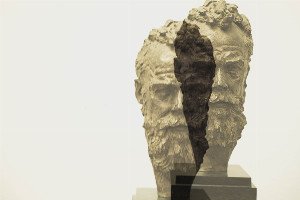Nicolas Froeliger
Le dernier refuge des gens compliqués : de l’intérêt des chiffres et des mathématiques en traduction
Introduction
Le dernier refuge des gens compliqués : de l’intérêt des chiffres et des mathématiques en traduction. Découvrez comment le raisonnement mathématique peut simplifier la traduction technique et spécialisée. Cet article explore l'intérêt des chiffres et l'expertise du traducteur à l'ère de la TA.
Abstract
Grounded in both the works of cognitive sciences scholars like Kahneman and Pinker and, above all, in real-life examples, this contribution strives to demonstrate how having recourse to mathematical reasoning can be a source of simplification for translators – at least in pragmatic translation, and more specifically in technical or specialized translation. Some may argue that this is not the obvious choice, yet I shall try to demonstrate the flaws of this argument. Starting from the assumption that the translation of mathematical elements should by no means be literal, I argue that numbers are not only a language (itself translatable into everyday language), but also an element of culture. It is also shown that, paradoxically, the universe to which mathematics invites us is essentially a relaxing one, among other things, because it invites us to reason in terms of categories. It thus reminds us that translators should never give up on understanding and that to understand, one must represent the translated phenomena in concrete terms. Only by so doing, we make ourselves understood. This raises anew the question of expertise in translation, of the linguistic nature or otherwise of this operation, of the relationship between the analog and the digital, which spurs us to include the numerical aspects of documents to be translated into our approach, and of the profile of current and future translators, at a time when machine translation is becoming almost universally prevalent.
Review
This contribution presents a highly engaging and counter-intuitive argument concerning the role of mathematical reasoning in translation, especially within pragmatic, technical, and specialized contexts. The author's central thesis, that recourse to mathematical logic can simplify the translator's task, is particularly intriguing given the common perception of mathematics as a complex, rather than simplifying, domain for language professionals. Grounded in both cognitive science scholarship (Kahneman, Pinker) and, crucially, real-life examples, the abstract promises a compelling demonstration of this unexpected utility. The provocative title, "Le dernier refuge des gens compliqués," effectively sets the stage for a re-evaluation of how translators approach numerical and logical challenges, suggesting a valuable shift in perspective. The abstract outlines several key claims that warrant further exploration. The argument that the translation of mathematical elements should not be literal, and that numbers function as both a translatable language and a cultural element, offers a nuanced approach to an often-overlooked aspect of translation studies. Furthermore, the proposition that mathematics provides a "relaxing universe" through its invitation to categorical reasoning, thereby fostering concrete representation and deeper understanding for translators, is an innovative insight. This perspective challenges the notion that quantitative data inherently complicates the translator's work, instead framing it as a tool for enhanced comprehension and accurate rendering, ultimately ensuring the translated message is understood by the target audience. Beyond its core argument, the paper wisely connects its specific claims to broader, fundamental questions in the field. It re-raises critical discussions around translator expertise, the very nature of translation (linguistic or otherwise), the interplay between analog and digital information, and the evolving profile of translators in an age dominated by machine translation. By advocating for the inclusion of numerical aspects in the translator's approach, the article provides a timely and relevant commentary on current and future translator training and practice. This promises to be a thought-provoking piece that encourages translators and scholars alike to reconsider the potential benefits of integrating a more mathematical mindset into their professional toolkit.
Full Text
You need to be logged in to view the full text and Download file of this article - Le dernier refuge des gens compliqués : de l’intérêt des chiffres et des mathématiques en traduction from mediAzioni .
Login to View Full Text And DownloadComments
You need to be logged in to post a comment.
Top Blogs by Rating
Unleash Your Inner Recess: The...
By Sciaria
Beyond Repair Shops: Unlocking...
By Sciaria
Goodbye Chargers: The Rise of...
By Sciaria
Favorite Blog
Are You Just a Colony? The Int...
By Sciaria
Beyond Human Perception: Unloc...
By Sciaria
The Unspoken Wisdom: Embracing...
By Sciaria





